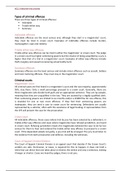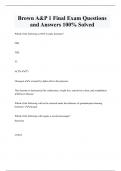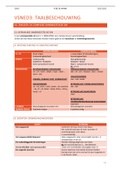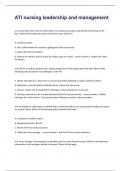Types of criminal offences
There are three types of criminal offences:
Indictable
Triable either way
Summary
Indictable offences
Indictable offences are the most serious and, although they start in a magistrates’ court,
they must be tried in crown court. Examples of indictable offences include murder,
manslaughter, rape and robbery.
Triable either way offences
Triable either way offences can be tried in either the magistrates’ or crown court. The judge
in a crown court has higher sentencing powers but the chance of being acquitted by a jury is
higher than that of a trial in a magistrates’ court. Examples of either way offences include
theft, burglary and assault occasioning actual bodily harm.
Summary offences
Summary offences are the least serious and include minor offences such as assault, battery
and most motoring offences. They must stay in the magistrates’ court.
Criminal courts
Magistrates’ court
All criminal cases are first heard in a magistrate’s court and the vast majority, approximately
95%, stay there. Only a small percentage proceed to a crown court. Generally, there are
three magistrates who decide both guilt and an appropriate sentence. They are lay people,
meaning that they are unqualified in the law. They are assisted by a legally qualified clerk.
Their sentencing powers are limited to six months and/or a £5000 fine for one offence, this
is doubled for one or two more offences. If they feel their sentencing powers are
inadequate, they can send a case to crown court for sentencing. Defendants are usually
represented by a solicitor, often with the assistance of legal funding. A representative from
the CPS will present the case for the prosecution.
Crown court
All indictable offences, those cases where trial by jury has been selected by a defendant, in
triable either way offences and cases where magistrates have refused jurisdiction, are heard
in crown court. Refusing jurisdiction means the magistrates believed the case to be far too
serious for them to hear and ordered the triable either way offence to proceed to a crown
court. If the dependant pleads not guilty, a jury trial will be arranged. The jury must listen to
the evidence from both prosecution and defence, including the witnesses.
Court of Appeal Criminal Division
The Court of Appeal Criminal Division is an appeal court that decides if the Crown Court’s
verdicts are safe. Permission, or leave, is required for this to happen. It does not hold a
retrial but can direct that one takes place or dismiss the verdict and vary a sentence, making
it longer or shorter. Cases are heard by judges, there is not jury.
, AC2.2 Describe trial process
Supreme court
Formally known as the House of Lords, a case may proceed to the Supreme Court – top
court in the hierarchy – if it concerns a point of law of general public importance. Leave is
required for this to happen. Twelve Law Lords sit in this court and make rulings that binds all
courts beneath it.
Bail
A person can be released on bail at any point after being arrested by the police. Defendants
can be released on bail at any point after an arrest, such as before charge or pending
hearing. The police and the courts grant bail. It can be unconditional or have conditions such
as curfew, reporting, residence, and not to contact witnesses. These conditions can be
issued to ensure the person surrenders to bail, does not offend while on bail or does not
interfere with witnesses. With regards to police bail, it can also be refused if the suspect's
name and address cannot be ascertained or there are doubts about whether the suspect's
name and address are genuine.
Plea bargaining
Plea bargaining is an arrangement agreed by the prosecution and defence or the judge as an
incentive for the defendant to plead guilty. It could concern the actual charge, when the
defendant pleads guilty to a lesser charge or only to some of the charges that are filed
against them, e.g., manslaughter instead of murder. Alternatively, it might relate to the
sentence when the defendant is told in advance what their sentence will be if they plead
guilty. This can help the prosecutor obtain a conviction, particularly in cases where the
defendant is facing serious charges.
Appeals
Appeals from a magistrates’ court
The defendant can appeal against their conviction or sentence received from a Magistrates’
court to have their case heard at a Crown Court. Here the case is heard as a retrial by a
judge and two magistrates. The conviction can be confirmed, dismissed or varied, perhaps
to a lower charge. With regards to sentence, it can be reduced or increased. The right to
appeal is automatic, and no leave or permission is needed. If a point of law is involved, there
is a right to appeal to the High Court by way of 'Case Stated'.
Appeals from a crown court
The defendant could seek leave to appeal, to the Court of Appeal Criminal Division, against
their conviction and/or sentence. The only ground to appeal against a guilty verdict is that
the conviction is unsafe. The Court of Appeal has the power to order a retrial, vary the
conviction, decrease the sentence, although not increase it, on a defendant's appeal. Any
further appeal by either the defence or prosecution would be to Supreme Court, with leave,
or permission, if the case involved a point of law that was of general public importance.





